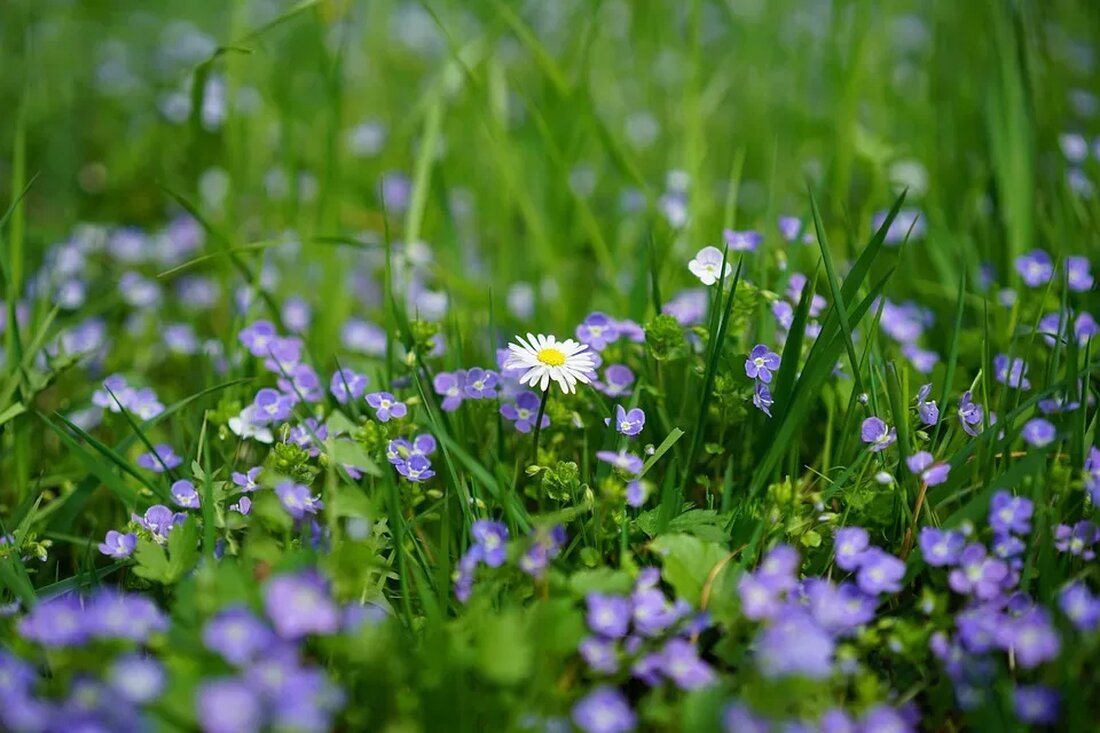Self-medication with medicinal plants: A guide
Self-medication with medicinal plants: A guide Medicinal plants have a long tradition in the treatment and prevention of diseases. Their use in self-medication is becoming increasingly important. More and more people are looking for natural alternatives to chemical medications and are discovering the diverse uses of medicinal plants. This guide provides an overview of the most important medicinal plants, their possible uses and precautions to be taken when self-medicating. Introduction to self-medication with medicinal plants Self-medication with medicinal plants refers to the responsible use of plants to relieve health problems. The effective components of the plants are used, such as leaves, flowers, roots...

Self-medication with medicinal plants: A guide
Self-medication with medicinal plants: A guide
Medicinal plants have a long tradition in the treatment and prevention of diseases. Their use in self-medication is becoming increasingly important. More and more people are looking for natural alternatives to chemical medications and are discovering the diverse uses of medicinal plants. This guide provides an overview of the most important medicinal plants, their possible uses and precautions to be taken when self-medicating.
Introduction to self-medication with medicinal plants
Self-medication with medicinal plants refers to the responsible use of plants to alleviate health problems. The effective components of plants, such as leaves, flowers, roots or bark, are used to treat certain ailments or to promote general well-being. This form of self-treatment offers several advantages, such as the natural origin of the plants, an often lower rate of side effects compared to chemical medications and the opportunity to make an active contribution to your own health.
Important medicinal plants and their possible uses
1. Chamomile (Matricaria chamomilla)
Chamomile is one of the best-known medicinal plants and is used to treat various ailments. Their anti-inflammatory and antibacterial effects can be helpful for skin inflammation, gastrointestinal complaints and colds. Chamomile tea or chamomile extract can be used topically to disinfect wounds or soothe skin irritations.
2. St. John's wort (Hypericum perforatum)
St. John's wort is particularly used for depressive moods and mild to moderate depression. It has mood-enhancing and balancing properties. St. John's wort is usually used in the form of capsules or as a tea. However, it is important to note that St. John's wort can affect the effects of other medications, so a doctor or pharmacist should be consulted before use.
3. Valerian (Valeriana officinalis)
Valerian is traditionally used to treat nervous restlessness and sleep disorders. The calming effects of valerian can help reduce anxiety and promote restful sleep. Valerian supplements are available as capsules, drops or tea. However, if sleep problems persist for a long time, medical advice should be sought.
4. Peppermint (Mentha piperita)
Peppermint is often used for gastrointestinal complaints such as flatulence, cramps or nausea. Peppermint essential oils have an antispasmodic and calming effect on the digestive tract. Peppermint tea or peppermint oil can be taken or applied topically as needed.
5. Marigold (Calendula officinalis)
Marigold has anti-inflammatory and wound-healing effects. It is used externally for skin problems, minor burns or skin irritations. Calendula ointments or tinctures can be applied to the affected areas.
6. Echinacea (Echinacea purpurea)
Echinacea, also known as echinacea, has immune-stimulating properties and is used to prevent and treat colds and respiratory infections. There are different dosage forms of Echinacea, such as tablets, capsules or drops.
Precautions and advice on self-medication
When self-medicating with medicinal plants, it is important to observe some precautions:
– Consult a doctor or pharmacist before using medicinal plants to ensure that there are no interactions with other medications.
– Pay attention to the recommended dosages and application instructions on the packaging of the medicinal plant products.
– Do not use medicinal plants if you are allergic to them or have a known hypersensitivity.
– Please note that medicinal plants are not miracle cures and their effects can vary from person to person. If you have serious or persistent symptoms, you should always consult a doctor.
– Avoid using medicinal plants during pregnancy and breastfeeding unless discussed with a doctor.
Conclusion
Self-medication with medicinal plants offers a natural alternative to treating various ailments and promoting general well-being. A variety of medicinal plants with different effects are available and can be selected depending on your needs and symptoms. However, it is important to follow the precautions mentioned and always consult a doctor if symptoms persist or are severe. With the right knowledge and application, medicinal plants can be a valuable addition to a healthy lifestyle.
Sources:
1. National Center for Complementary and Integrative Health: https://www.nccih.nih.gov/health/tips/mind-and-body-approaches-for-stress-what-the-science-says
2. Medicinal plant lexicon: https://www.arzneipflanzenlexikon.info/
3. Phytotherapy Research: https://onlinelibrary.wiley.com/journal/10991584
4. Deutsche Apotheker Zeitung: https://www.deutsche-apotheker-zeitung.de/earhart/selbstmedikation-ohne-risk
5. American Botanical Council: https://abc.herbalgram.org/site/PageServer

 Suche
Suche
 Mein Konto
Mein Konto
